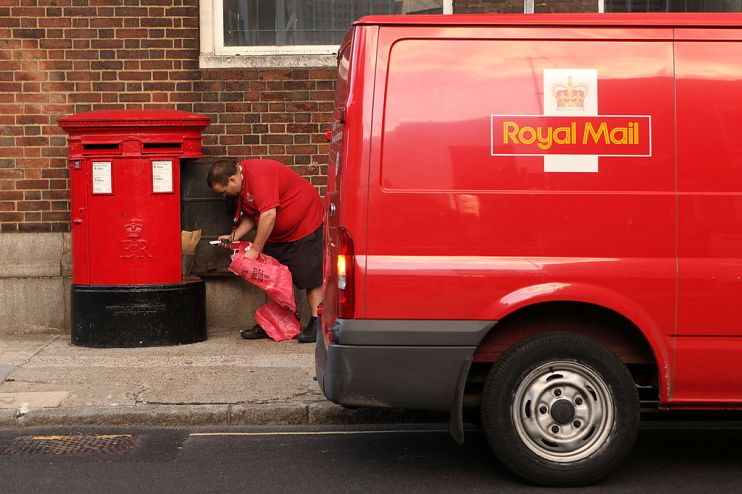Watchdog: ‘Unsustainable’ Royal Mail could be allowed to deliver post on only three days of the week

The communications watchdog has called for modernisation of the Royal Mail and postal service for the modern age – with proposals including a slower first-class service and reducing the number of delivery days from six to three.
Ofcom this morning called for a “national debate” on the future of the UK’s postal service.
Following the warning, Royal Mail’s owner, International Distributions Services, saw its share price rise by more than three per cent after the open.
The watchdog said reducing the number of letter delivery days from six to five would save the Royal Mail £100-200m, whilst reducing it to three days a week could save £400-650m.
Changes to the universal postal obligation would have to pass through parliament.
The body also proposed changing the delivery speed of first and second class letters, potentially as long as three days or more, with a ‘next-day’ service for urgent letters.
Royal Mail, which is part of London-listed outfit IDS, has been calling for reform of the service obligation as letter volumes have cratered.
Volumes have halved since 2011, whilst the firm’s obligations have not. Ofcom said Royal Mail risked becoming “financially and operating unsustainable in the long term.”
Royal Mail was fined over £5m last year for missing existing delivery targets and Ofcom today warned that reform was not a cop-out for the company.
Dame Melanie Dawes, Ofcom’s Chief Executive, said: “Postal workers are part of the fabric of our society and are critical to communities up and down the country. But we’re sending half as many letters as we did in 2011, and receiving many more parcels. The universal service hasn’t changed since then, it’s getting out of date and will become unsustainable if we don’t take action.
“So we’ve set out options for reform so there can be a national discussion about the future of universal post. In the meantime, we’re making sure prices will remain affordable by capping the price of Second Class stamps.”